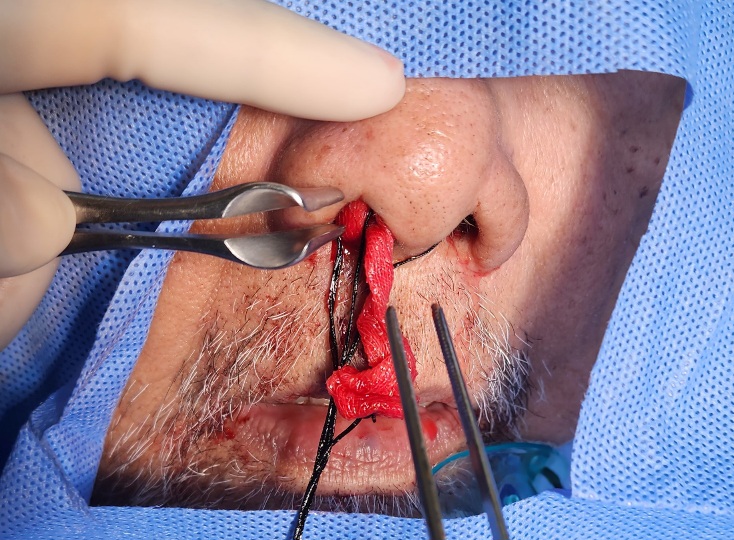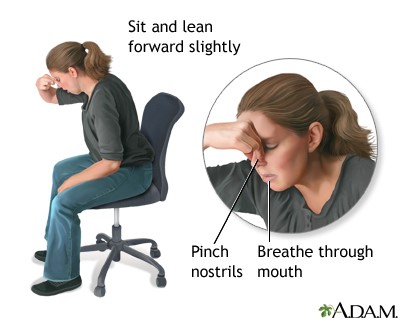Have you ever had nosebleed? Or had a friend or relative with nosebleed and you did not know what to do? Well, this blog is meant to teach you some facts about nose bleeds as well as first aid maneuvers when you encounter one. An emergency consult with an ENT doctor is necessary when these steps to not resolve the nosebleeding

Why is the Nose Prone to Nosebleeding?
The nose is prone to nosebleeds, also known as epistaxis, due to its rich blood supply and the delicate nature of the blood vessels within the nasal cavity. The nose contains a network of blood vessels close to the surface, which are fragile and are more susceptible to irritation and injury.
Common causes of nosebleeds include dry air, nose picking, trauma or injury to the nose, allergies, frequent nose blowing, and certain medical conditions such as high blood pressure or blood clotting disorders. Other conditions such as high altitude, a cold dry environment, drug abuse involving the nose, and the use of anti-clotting medications may also make on prone to nosebleed or epistaxis.
The fragile nature of the nasal blood vessels, combined with these factors, can lead to spontaneous bleeding from the nose.

Nosebleed is usually benign in origin, but may cause the patients of the ENT doctor, or their relatives to worry. It is important that you should not panic.
The following first aid maneuvers, are usually enough to control the nosebleed:
First Aid Treatment for Nosebleed
The following first aid maneuvers, are usually enough to control the nosebleed:
- Sit up straight and lean slightly forward. A common misconception is that tilting your head back will make the bleeding stop. The reality is, tilting your head back will only cause you to swallow blood which can irritate your stomach and make you vomit afterwards.
- Pinch your nostrils together, applying direct pressure with the thumb and index/ middle finger for approximately 10 minutes.
- Spit out any blood in the mouth. Swallowing blood may make you vomit. This increase in abdominal and thoracic pressure may worsen the nosebleed.
- Put an ice pack over the nose bridge (NOT over the forehead). Chewing on ice chips may help in some cases of nosebleed.
If all of the above fail to control the nosebleed in 15-20 minutes, or if you are bleeding profusely, go to your nearest medical facility so your ENT doctor can treat you properly.
Experience the best ear, nose and throat care tailored to your needs.
Book now to schedule your appointment with our skilled ENT doctor in Puerto Princesa, Palawan now and take the first step towards a healthier you.
Your well-being is our top priority.

